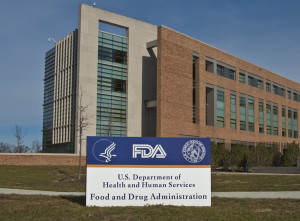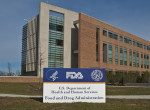excerpt from The Left, the Right, and the State by Llewellyn H. Rockwell Jr. :
Founded by Richard Nixon, the Occupational Safety and Health Administration is an anti-entrepreneur agency. Not only does OSHA target small and medium-size businesses, its regulatory cases are easily handled by Exxon’s squad of lawyers, while they can bankrupt a small firm.
Also founded by Nixon, the Consumer Product Safety Commission issues regulations drawn up in open consultation with big business—regulations that often conform exactly to what those firms are already doing. Small businesses, on the other hand, must spend heavily to comply.
Another Nixon creation is the Environmental Protection Agency, whose budget is larded with the influence of politically connected businesses, and whose regulations buttress established industries and discriminate against entrepreneurs, by— for example—legalizing pollution for existing companies, but making new firms spend heavily
The Department of Housing and Urban Development was founded by Lyndon B. Johnson, but its roots stretch back to the housing policy of the New Deal, whose explicit purpose was to subsidize builders of rental and single-family housing. Since LBJ’s Great Society, HUD has subsidized builders of public housing projects, and of subsidized private housing. How can anyone be surprised that fat cats use HUD to line their pockets? That was its purpose.
The Securities and Exchange Commission was established by Franklin D. Roosevelt, with its legislation written by corporate lawyers to cartelize the market for big Wall Street firms. Over the years, the SEC has stopped many new stock issues by smaller companies, who might grow and compete with the industrial and commercial giants aligned with the big Wall Street firms. And right now, it is lessening competition in the futures and commodities markets.
The Interstate Commerce Commission was created in 1887 to stop “cut-throat” competition among railroads (i.e., competitive pricing) and to enforce high prices. Later amendments extended its power to trucking and other forms of transportation, where it also prevented competition. During the Carter administration, much of the ICC’s power was trimmed, but some of this was undone in the Reagan administration.
The Federal Communications Commission was established by Herbert Hoover to prevent private property in radio frequencies, and to place ownership in the hands of the government. The FCC set up the network system, whose licenses went to politically connected businessmen, and delayed technological breakthroughs that might threaten the networks. There was some deregulation during the Reagan administration— although it was the development of cable TV that did the most good, by circumventing the networks.
The Department of Agriculture runs America’s farming on behalf of producers, keeping prices high, profits up, imports out, and new products off the shelves. We can’t know what food prices would be in the absence of the appropriately initialed DOA, only that food would be much cheaper. Now, for the first time since the farm program was established by Herbert Hoover, as a copy of the Federal Food Administration he ran during World War I, we are seeing widespread criticism of farm welfare.
The Federal Trade Commission—as shown by the fascist deco statue in front of its headquarters—claims to “tame” the “wild horse of the market” on behalf of the public. Since its founding in 1914, however, it has restrained the market to the benefit of established firms. That’s why the chief lobbyists for the FTC were all from big business.
When then-Congressman Steve Symms (R-ID) tried to partially deregulate the Food and Drug Administration in the 1970s to allow more new drugs, he was stopped by the big drug companies and their trade association. Why? Because the FDA exists to protect them.
OSHA, CPSC, EPA, HUD, SEC, ICC, FCC, DOA, FTC, FDA—I could go on and on, through the entire alphabet from Hell. I have only scratched the villainous surface. But according to the average history or economics text, these agencies emerged in response to public demand. There is never a hint of the regulatory-industrial complex. We’re told that the public is being served. And it is: on a platter.
